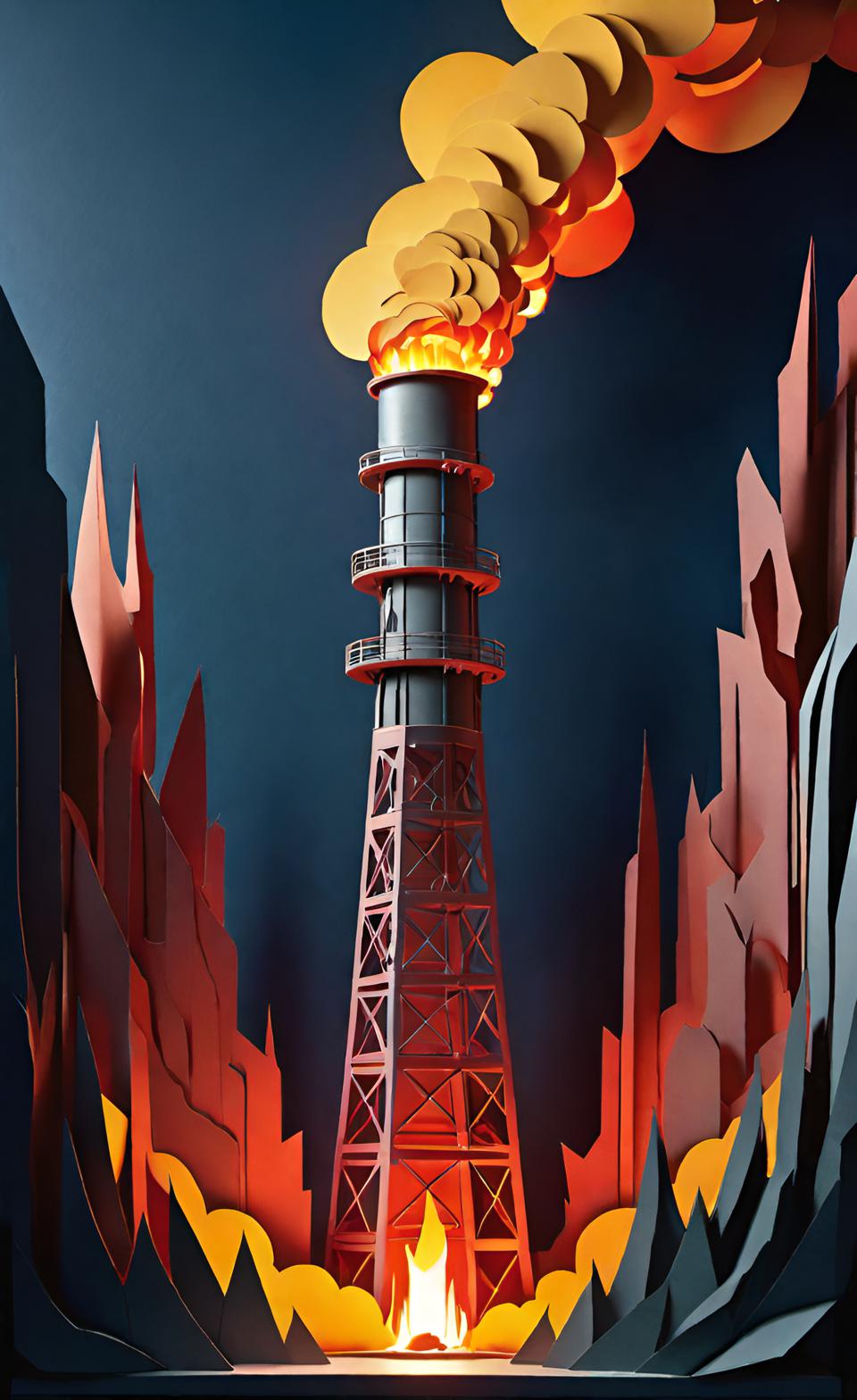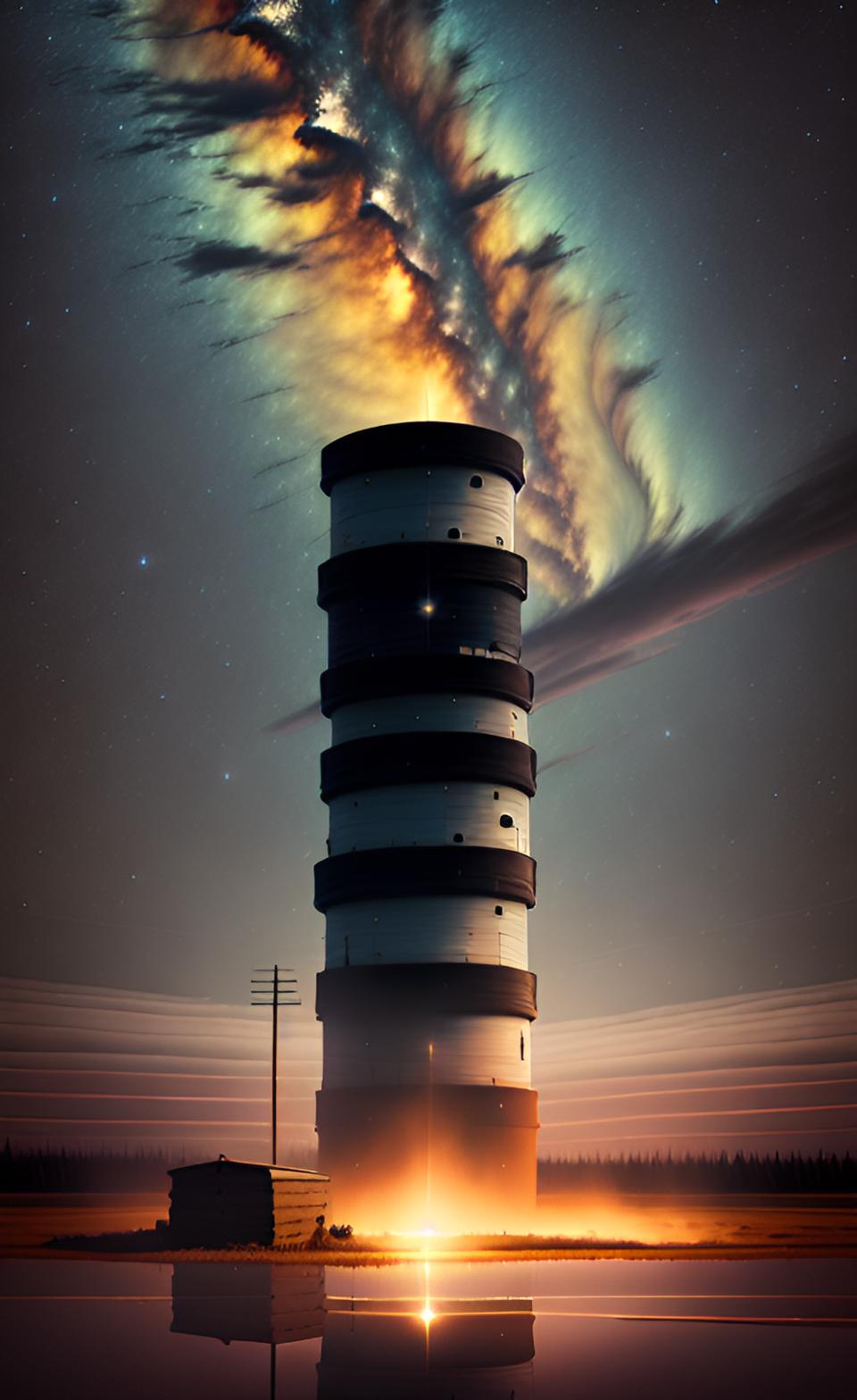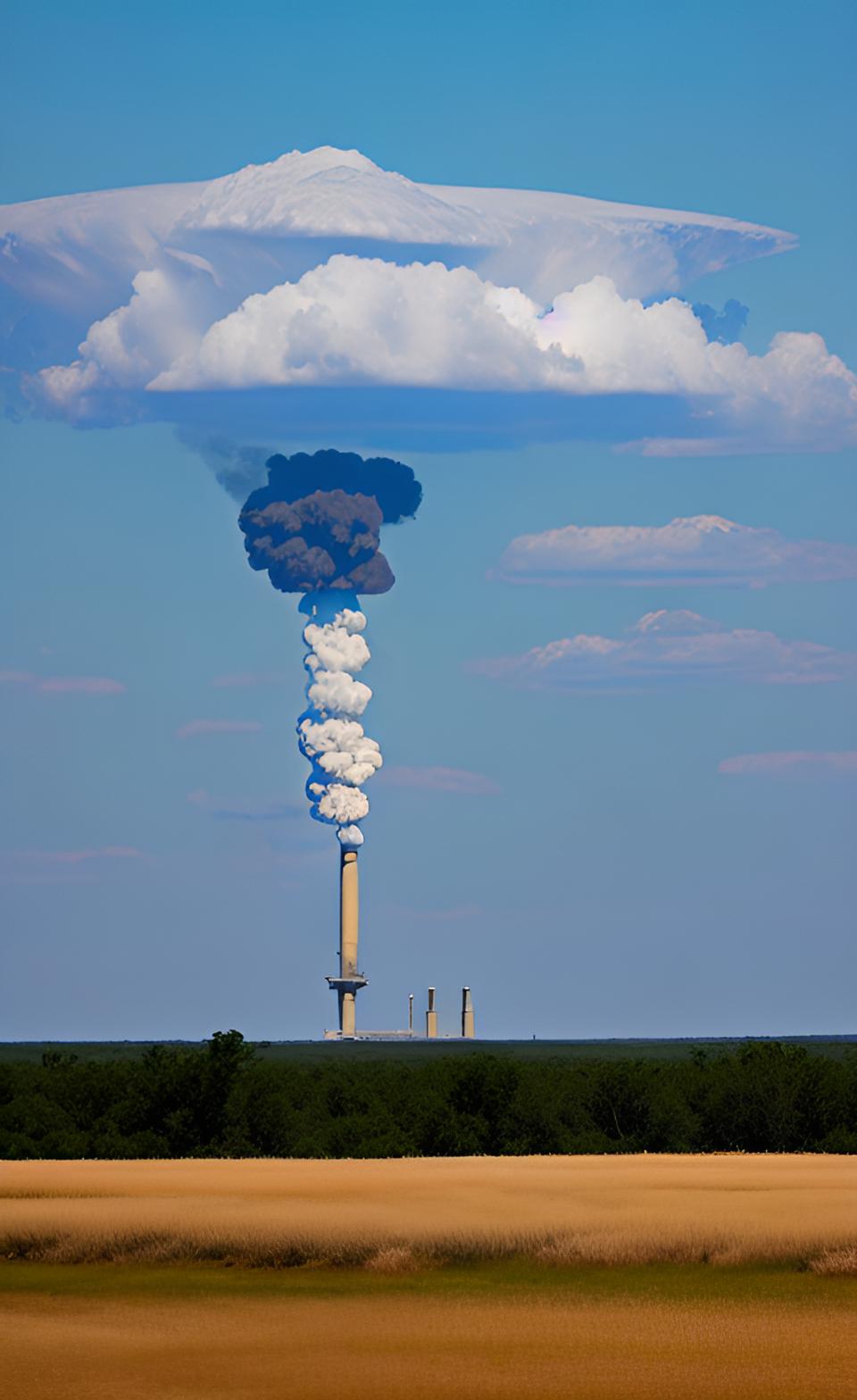- Air Homepage
- Alberta Air Quality
- Air Quality Dispersion Modelling
- What Is a Gas Flare
Finding out what is a gas flare and what makes them mysterious
What is a Gas Flare? Can giant flames and clean air coexist? You might want to know...the air you breathe is connected to those flames.
Modelling gas flare dispersion - Is that fiery plume that dominates the industrial skyline a pollutant or a safety measure? Find out how Canadian provinces have us model giant flames and keep the air clean without guessing the environmental impact of flares.
 Environmental Impacts of Gas Flares
Environmental Impacts of Gas FlaresGas flares: The Secret Life. Are they okay? Does that fiery plume out in the oil field represent a villain or a hero? Gas flares are explained in this text.
Scientists show industry how to tame giant flames. Learn how science guides us in keeping the air clean when we model gas flares.
Flares: Beyond the Smoke and Fire. The text below goes beyond gas flares' spectacle to reveal their environmental impact. Keep in mind, though, flares play a complex role in air quality, as we will see.
In this article, we explore how to handle air quality and safety dispersion modelling for flaring and incineration in the provinces of Alberta, Saskatchewan, and British Columbia. The web links provided at the main air quality dispersion modelling page provide access to their guidelines.
Gas flare definition and description
Besides refineries, chemical plants, and natural gas processing plants, gas flares are used at oil and gas extraction sites, like oil wells, gas wells, offshore rigs, and landfills. Gas flares are used to burn off excess flammable gas in oil and gas operations. This gas combustion device looks like a tall stack with a flame at the top.
Oil and gas operations
Fires burn off flammable gas released by safety valves during unplanned over-pressuring. Also used for short-term combustion of gases during plant startup and shutdown. Flares are used at extraction sites for startup, maintenance, testing, safety, and emergencies
Safety depends on flares. Gas is burned off to prevent dangerous pressure builds up, as noted here:
- During maintenance and testing, gas flares are used to dispose of gases safely
- Flares reduce pressure quickly in emergency situations, like equipment failures
- Flares can be used to get rid of gas that can't be economically captured.
Overview
There's been gas flaring since the beginning of oil production over 160 years ago. This type of stack was developed in order to safely dispose of natural gas associated with oil extraction.
Industry-wide applications
Flares are used in refineries, chemical and petrochemical plants, natural-gas processing plants, offshore exploration platforms, well heads, and landfills, among others. Manage waste gases that can't be captured or processed to ensure safety and reduce environmental impact. There are many of these stacks in Canada, and provincial air quality regulations give guidance on their operations and impacts.
Managing B.C.'s Air Pollution
When sour gas is flared, it emits sulphur dioxide SO₂, which can pollute the air. Flaring emissions can be continuous or short-term with variable flow rates. What is a gas flare to the model? Here's how models handle different flaring scenarios:
- AERSCREEN (which quickly estimates worst-case concentrations of air pollutants using AERMOD algorithms) for Continuous Flaring: This model takes flare stack height, heat release rate, and radiative heat loss into account. BC recommends a 55% radiative heat loss fraction to predict resulting concentrations in a cautious manner.
 An example of a flare
An example of a flare- Variable Flaring: AERMOD (for modelling short-range dispersion of pollutants from stationary industrial sources) doesn't explicitly handle flares, so we use it to model them as point sources with adjusted (i.e., pseudo-) stack parameters. Effective stack height and diameter can be calculated with standard formulas provided by the USEPA and other scientific sources.
- It's recommended to model flares as point sources with calculated pseudo-stack parameters in CALPUFF (an advanced non-steady-state model to simulate long-distance pollutant transport) and AERMOD. It's crucial to assess potential air quality impacts during abnormal flaring events, such as emergency, maintenance or start-up conditions. Risks to the environment and human health can be determined by selecting worst-case scenarios to model.
Flaring operators must follow guidelines based on hydrogen sulphide (H₂S) concentrations and SO2 predictions. To reduce air quality impacts, operators may need to adjust flaring rates, stack heights, or consider alternative methods.
Flaring must be suspended if ambient SO₂ levels exceed safety thresholds in cases where abnormal flaring is expected. Vegetation damage predictions associated with sulfur emissions must also be taken into account, with specific criteria provided by the Ministry of Environment for assessing visible foliar damage.
What is a Gas Flare's impact? Alberta's Clean Air Regulations
For approval, regulatory authorities need detailed analysis, including spatial distribution of exceedances and weather conditions. To ensure compliance with environmental regulations, detailed modelling with site-specific data is required if significant vegetation damage is predicted. Alberta's Alberta Energy Regulator (AER, who makes sure Alberta's energy resources are developed safely, efficiently, and environmentally) sets out detailed guidelines for flaring and incineration.
 Assess and reduce health impacts of air pollution
Assess and reduce health impacts of air pollutionWhat is a gas flare that doesn't run all the time? Non-routine flare flames (as opposed to continuous ones) follow special guidelines set out by the AER. Non-routine flares require modeling based on specific guidance provided in documents like "Non-Routine Flaring Management: Modelling Guidance" from Alberta Environment and Protected Areas (AEPA). The AER provides tools for calculating the effects of flares, which should also be used for non-routine flares. AER provides a sophisticated tool for dispersion modelling of flare emissions under varying conditions. It's integrated into an Excel spreadsheet known as AERFlare.
The risk-based approach shouldn't be used for continuous flares because they're constant sources and must follow more stringent standards. Using the AER's supporting tools, pseudo-parameters (which simulate a regular stack for air dispersion model input) should be generated for continuous flares.
Certain options like "no stack downwash" should be selected when using these parameters, since these are already considered in the AER's tool.
Incinerators must follow current guidelines, and their stacks can be modelled based directly on measurements. When emission parameters aren't known, AER's tools can provide reasonable pseudo parameters, ensuring they meet regulations.
More Than Dust Storms: Saskatchewan's Air Pollution Sources
Model flares and incinerators based on their intended use. What is a gas flare used for? As an example, if a flare used for non-routine operations is also used continuously, both modes' impacts must be clearly demonstrated in the modelling assessment. It's possible to model flares in dispersion models like AERMOD, CALPUFF, and AERSCREEN. Some adjustments will be apropos.
For instance, flare plume rise is calculated using an effective buoyancy flux parameter, assuming a 45-degree bend from vertical. It's important to input the radiative heat loss percentage for accurate modelling, and Section 11 of the new guideline explains how to do it.
 Modelling variation of heights and other parameters
Modelling variation of heights and other parametersFlaring comes in four main types:
- continuous,
- routine,
- non-routine,
- and well test.
Non-routine events like emergency shutdowns are intermittent and unplanned, with varying durations and purposes. Model flares based on their designed usage, including flow rates and gas composition.
It's important to calculate pseudo parameters for flares, like stack height and diameter, considering factors like radiative heat loss and effective velocity. Effective stack height is calculated by adding the physical stack height to the flame tip height, while effective diameter and velocity are calculated by buoyancy and momentum flux equations.
Flares are designed to handle routine and non-routine events, and flame heights vary through these. For this reason, it's important to model all possible scenarios.
Industrial Air Quality Solutions
Imagine securing approvals for your next project quickly and efficiently, while also meeting the highest environmental standards. Our expert air quality dispersion modelling services at Calvin Consulting Group Ltd. help you turn that vision into reality.
As an industrial professional, you understand the importance of responsible operations. Regulations regarding air quality can seem complex, and navigating the approval process can become quite daunting. That's where Calvin Consulting comes in. You'll be guided through every step of the process by our team of highly experienced meteorologists and dispersion modellers who have been at it for over 30 years.
Rather than just meeting the minimum requirements, we go the extra mile. In order to determine how your facility's emissions will interact with the surrounding environment, we utilize sophisticated dispersion modelling software such as AERMOD and CALPUFF. And as a result of this meticulous approach, you get the green light from regulatory bodies while minimizing environmental impact.
Calvin Consulting stands out for the following reasons:
- Our team boasts some of the most experienced dispersion modellers in Canada, with combined experience of over 85 years. Even government agencies like Alberta Environment and Protected Areas have been trained by us.
- Using site-specific data and cutting-edge modelling techniques, we provide the most accurate picture.
- Providing clear, actionable insights that you can understand and use with confidence: We translate complex scientific concepts into clear, actionable insights that you can understand and use.
- Our comprehensive reports ensure your project complies with all regulatory requirements, saving you time and money.
Don't let air quality concerns derail your project. Get in touch with Calvin Consulting Group Ltd. at...

...today and rest easy knowing you're in good hands.
Clean air is our Passion...Regulatory Compliance is our Business.
Flares burn excess gas at oil and gas facilities like giant lighters.
As a result, sulphur dioxide (SO2) is released into the air. But wait! Computer programs predict where SO2 goes, so we know how to use flares responsibly. Wanna know how they do it? Take a look at this!
Do you have concerns about air pollution in your area??
Perhaps modelling air pollution will provide the answers to your question.
That is what I do on a full-time basis. Find out if it is necessary for your project.
Have your Say...
on the StuffintheAir facebook page
Other topics listed in these guides:
The Stuff-in-the-Air Site Map
And,
Thank you to my research and writing assistants, ChatGPT and WordTune, as well as Wombo and others for the images.
OpenAI's large-scale language generation model (and others provided by Google and Meta), helped generate this text. As soon as draft language is generated, the author reviews, edits, and revises it to their own liking and is responsible for the content.



New! Comments
Do you like what you see here? Please let us know in the box below.